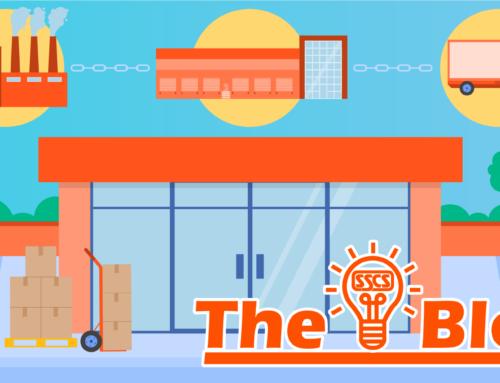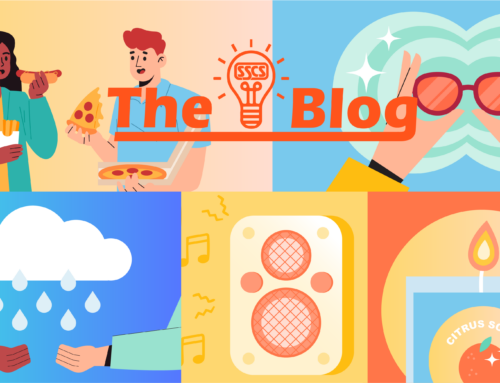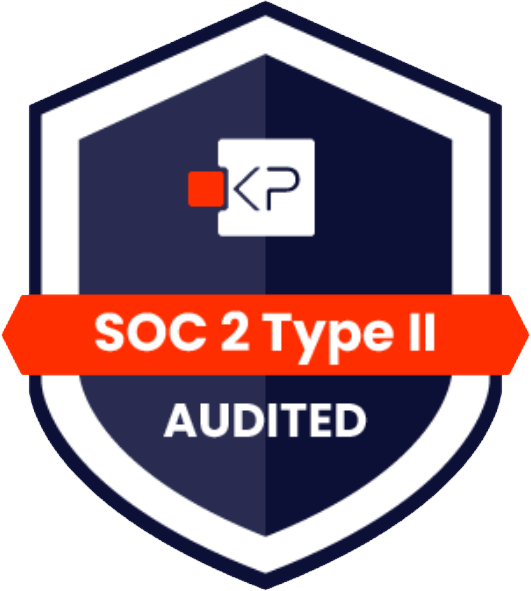 Jeff Toeppner is the director of eBusiness Solutions for Coca-Cola Consumer Business Solutions (CBS). He and his team are charged with automating routine business transactions and data transfer by serving as the electronic postal system for Coca-Cola. As such, their goal is to increase information exchange and to reduce waste between Coca-Cola and its trading partners, like SSCS.
Jeff Toeppner is the director of eBusiness Solutions for Coca-Cola Consumer Business Solutions (CBS). He and his team are charged with automating routine business transactions and data transfer by serving as the electronic postal system for Coca-Cola. As such, their goal is to increase information exchange and to reduce waste between Coca-Cola and its trading partners, like SSCS.
If you are an SSCS customer that uses EDI to receive invoices from Coca-Cola, you experience the impact of Jeff’s group first hand. Since SSCS and Coca-Cola are aligned in their desire to make the daily work of convenience store operators easier and more efficient, we work together diligently to make sure that the transfer of electronic invoice files from Coca-Cola suppliers to your Computerized Daily Book software works seamlessly even as technology and delivery systems evolve at a frantic pace.
Jeff recently sat down with us to share how his team streamlines eCommerce in the C-store industry.
SSCS: Can you please describe in your own words the focus of Coca-Cola CBS?
Jeff Toeppner: CBS is a “shared service” for the Coca-Cola Bottling system. When enabled, these shared services benefit, through efficiencies, everyone within our system from national sales to our retail customers to our Coca-Cola bottling partners.
SSCS: What are bottling partners?
JT: Coca-Cola Bottling partners are separate companies from The Coca-Cola Company. They deliver our products to retail locations. There are over 65 independent franchise bottling companies operating in the U.S. It is more efficient for CBS to provide the services than to have each company provide the capability themselves.
SSCS: What kind of services are we talking about?
JT: EDI (Electronic Data Interchange) is a good example. If CBS didn’t provide the service, each individual bottling company would need to enable the capability, manage the infrastructure and create maps to enable various routine business transactions to and from customers. It also streamlines the Coca-Cola system’s connections to our retail partners as it provides them with one Coca-Cola contact.
Some services need to be managed across all bottlers. CBS collects bottler sales data, manages customer information and synchronizes item data via the Global Data Synchronization Network. These services are done so that Coca-Cola sales teams can view item and sales data across all companies when creating national promotions.
SSCS: Talk a little about your duties.
JT: I lead a team of professionals who are responsible for creating Business-to-Business (B2B) connections with retailers to automate processes and streamline our business relationship. By implementing secure file exchange via EDI standard processes, order through payment can be much more efficient for all parties. The CBS team also connects to banks, suppliers and other third parties (like SSCS) all in the name of making our operations more efficient. We send and receive over 50 million transactions each year and truly act as the heartbeat of the Coca-Cola system in the U.S. and Canada. The CBS Team works together with our partners to understand business processes and enable those processes to work better by automating the exchange of data supporting them. Essentially, we are the electronic postal service, ensuring files get to where they are supposed to go.
SSCS: What are some concrete examples of how you and your company’s expertise can help C-stores become more profitable?
JT: The cost of doing business is made up of many things: the stores where retailers operate, labor, cost of products in inventory, marketing, and more.
One of the costs that all partners jointly share is the cost of the order to payment process. At a basic level, tracking down paper invoices, getting them to the right person, ensuring the data on them is accurate, keying them into systems for inventory and—finally—payment, can be a painful process. The Coca-Cola CBS Team is tasked with making that process easier and more efficient.
A file feed of invoices can be directly loaded into the Computerized Daily Book back office system. This streamlines the process on the retailer’s side. The amount of savings opportunities that exist depend on each retailer’s current processes and systems, but estimates to process paper documents range from $15–$75 per invoice.
When using EDI, this cost decreases dramatically, errors are reduced, and retailers can focus on sales and operations instead of the tedium of processing invoices. The same holds true for the entire order to payment process. When done electronically, the efficiencies are enormous. The receiving process can be automated, orders can be tracked in systems, and payments can be made directly from the bank, thus reducing the need to do paper check runs. Accuracy of information improves and manual processes are reduced. I think we can all agree that reducing manual processes is good for everyone.
SSCS: What are some common factors that C-store operators often overlook in their search for efficiency?
JT: From the time I have spent working within the industry with customers directly and through industry groups like Conexxus (www.conexxus.org), it has become clear that the small operators need to take advantage of opportunities to cut costs while reducing waste. Competition is fierce not only within the convenience channel, but across other channels. Drug chains, dollar chains, foods service and even club stores are all after the same customers. But even the smallest operators can compete if they take advantage of automation from suppliers that have the capability to help them. We all want to operate efficiently and effectively and take advantage of the speed that the Direct Store Delivery (DSD) model offers. Coca-Cola is the C-store’s partner, and we want to be their most valued supplier. If your business is doing well, then ours will also.
SSCS: Tell us the most rewarding and challenging parts of your job and why.
JT: The most challenging but rewarding part of the job is that the service we provide both our Coca-Cola bottling partners and customers is in high demand. Everyone is seeking to automate and be more efficient. This leads to a large number of requests across the Coca-Cola network with all being equally important. All of our trading relationships are important, and we work hard to ensure that our smallest partners have the same opportunities as our largest.
The most rewarding part of my job is knowing that Coca-Cola is a leader in the industry and that we, at CBS, are playing a vital role in making businesses better by reducing unnecessary costs. We are making it easier to do business with Coca-Cola. It is truly rewarding to know that we can solve problems together, focus on our customers, and grow sales together. I love being a Coca-Cola ambassador and working with retailers to delight customers and consumers of Coca-Cola products.






Leave A Comment